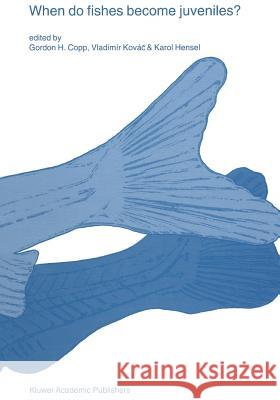When Do Fishes Become Juveniles? » książka
When Do Fishes Become Juveniles?
ISBN-13: 9789048153053 / Angielski / Miękka / 2010 / 286 str.
When Do Fishes Become Juveniles?
ISBN-13: 9789048153053 / Angielski / Miękka / 2010 / 286 str.
(netto: 575,06 VAT: 5%)
Najniższa cena z 30 dni: 578,30
ok. 22 dni roboczych.
Darmowa dostawa!
Metamorphosis and the transition from larvae or embryos to juveniles in fishes are important in order to answer, for example, questions about: (1) life-history styles and their modifications in evolutionary perspective and within current environmental demands; (2) the development and application of fisheries recruitment models, (3) the use of ontogenetic scales for interspecific comparisons, (4) the identification of ontogenetic shifts in resource use, and (5) the discovery of evolutionary interrelationships of species or genera. This volume is dedicated to recent studies and reviews of existing knowledge on this insufficiently-addressed area of ichthyology. Most of the papers in this volume were presented in Bratislava, Slovakia, at the 1st International Workshop of the Fish Ontogeny Network of Europe (FONE) in September 1997, a meeting sponsored in part by the European Commission. This volume emphasizes an integrated approach to the study of fish ontogeny, which is a process during which one event is related to another and everything is related to everything else, encompassing physiology, morphology, behaviour and niche. Within this comprehensive perspective, the papers in this volume are grouped along four major themes: reflections on early ontogeny and metamorphosis, organism-environment relationships, ontogeny of predator-prey interactions, and behaviour and ontogeny. Among other issues, the papers consider topics such as whether one can identify when fish metamorphosis ends, whether the larva period begins with hatching or with the onset of exogenous feeding, whether fish ontogeny is saltatory' or gradual', and whether larvae are eliminated in some fishes with direct development. The keynote paper of this volume reviews the main topics within contemporary paradigms and the final paper concludes that the onset of the juvenile period can be identified in some species, but precision remains problematic, emphasizing the need for further research in this dynamic area of fish biology.











